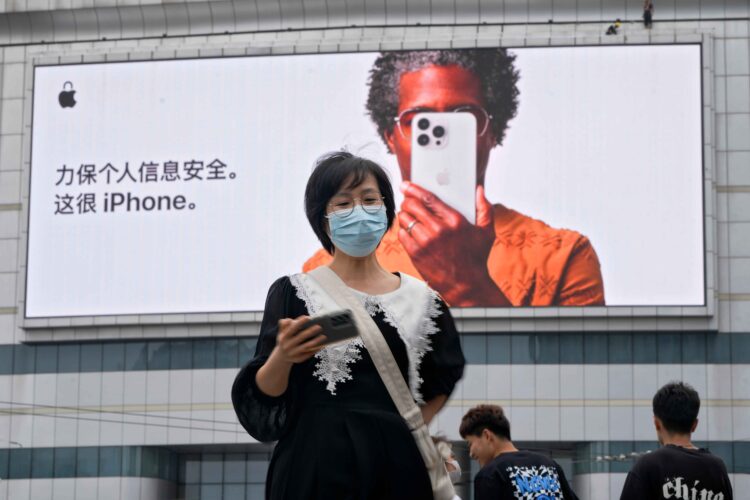Does your business sell a product with worldwide reach? Well, if you get on the wrong side of the Chinese Communist Party, your shares could tank.
Shares for tech giant Apple dropped by 7% from Wednesday to Thursday following reports that China could be banning the use of iPhones and other foreign-branded devices for its government employees.
While the bans have not been made public, sources familiar with the matter said Chinese government workers received instructions from supervisors this week that they were no longer allowed to use iPhones or foreign products for work. They were also told they are no longer allowed to bring them into Chinese government office buildings. The measures were put in place as part of a wider cybersecurity clamp down being conducted by the Chinese state.
Learn the benefits of becoming a Valuetainment Member and subscribe today!
It is not yet clear how far the new bans will reach. Bloomberg News reported that they will expand to many “sensitive departments,” including agencies affiliated with the Chinese government as well as state-run companies. Since the CCP virtually administers all Chinese businesses through a backdoor methods, these bans could eventually reach across the entire Chinese workforce.
When one factors in Hong Kong and Taiwan, Greater China is Apple’s third-largest market and accounted for 22% of its $394 billion revenue for 2022.

Chinese factories and supply chains also handle a large percentage of Apple product manufacturing: 70% of iPhones are manufactured in China, and nearly half of all Apple products were being produced in China in the last five years of the 2010s, according to Reuters.
But Apple CEO Tim Cook is looking to break out of that monopoly by setting his sights on India. This began in 2017, when Apple began to make some of its cheaper iPhone models there, but things did not begin to pick up speed until the COVID pandemic. Indeed, the Chinese share of iPhone manufacturing actually increased between 2017 and 2022.
But since the spike in trade tensions occurred between the U.S. and China during and after the Trump administration, Apple has moved quickly but quietly to tap other countries to build its products. In 2021, Apple asked its Taiwanese partners Foxconn, Pegatron and Wistron to help them set up iPhone manufacturing facilities in India. Meanwhile, Apple is looking to other nations like Vietnam to produce its AirPods and some of its Macs, Malaysia for Macs, and Ireland for iMacs and a range of other products.


















Add comment